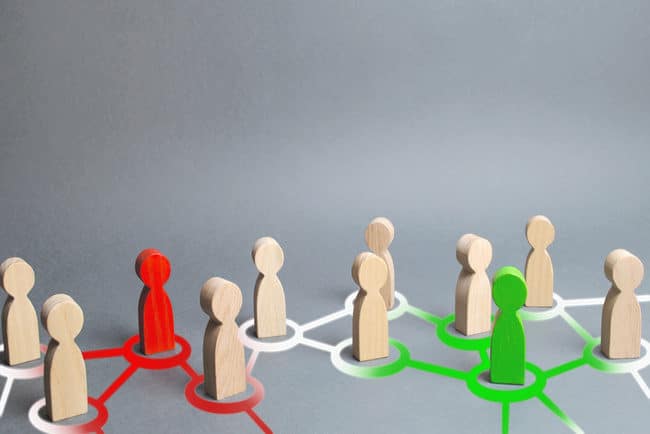“How can I sell more?” I hear that question a lot from salespeople everywhere. More often than not, it’s framed around a false assumption: the belief that you need to get more to sell more.
Having studied the winning habits of the best salespeople for two decades, what I know—and what I have tested repeatedly in my own work—is that selling doesn’t work when you just focus on gains for yourself.
The solution to selling more is to give more. A lot more.
That’s why I tell people that the way to win big in sales—to help yourself—is to be in service to other first. That’s what generosity is all about. In fact, being generous is a very old idea. That word in English comes to us from Middle French (généreux), and originally was meant to describe one’s actions as being suggestive of noble birth. In other words: to do more than what others might expect.
Let’s look at how this applies to selling.
Three paths to success begins with what’s personal
Success is a three-path journey where generosity in sales is concerned. First, you need to make it happen at a personal level. Next, it has to be in your work as a sales team. And finally it has to be reflected in your actions as a company.
In this first of a multi-part series, I’ll talk about what needs to happen first at the personal level.
And let’s be clear: being generous here is about doing good for goodness sake first. Then—and only then—do we begin recognizing why that helps us in return.
Every day, what we do on a personal level in our interactions with others is governed by our ability to persuade people. The more successful we are at that, the more likely we are to achieve the goals that matter to us. But persuasion is emotion driven. For people to be open to your ideas or messages, they first need to feel good about being around you.
In his book, Influence: The Psychology of Persuasion, Dr. Robert Cialdini identified the key ingredients that comprise being persuasive. The first item on that list—reciprocity—is one that ties directly to generosity. As Cialdini explains, the more often you help others, the more likely they feel obligated to return the favor.
So how you can be generous in ways others will want to reciprocate? Remember these three words: schedule, promote and share.
1. Schedule generously
Be generous with your time when working with your best clients. Ensure the meetings and calls you have with them include a bit of wiggle room so you’re never cutting them short if they need more time to talk. Often, the most important part of a conversation happens in those extra few minutes.
Reserve special blocks of time devoted exclusively to helping those important clients. I’ve seen this happen with one of my own clients who works in the agricultural sector. Every year, he books off a specified number of days during harvest season to go work in the fields of his best client—all unpaid.
Similarly, I know of two top sellers who became insiders within the largest trade association within their market. Their secret? They made themselves freely available to help that association at every event, every fundraiser and every workshop. As a result, they’ve been the number-one sellers in their organization for so long now that everyone else just competes for the number-two slot!
2. Promote others thoughtfully
Don’t wait for your clients to ask you for referrals. Give those freely so the power of word-of-mouth can elevate them to greater success. Remember: referrals and testimonials say true things about your client that they can never say convincingly about themselves on their own. Each time you take a moment and promote them, you’re giving them exposure that no amount of advertising money can buy.
Write a LinkedIn referral on their personal profile. Log onto your Google account and write a review about their business. Take five minutes and compose a thank you letter to your client’s boss, and express your gratitude for how you work so successful with their team. Keep a box of thank you notes in your desk drawer and send them regularly to people. Nominate your best clients for local business awards. All people want to be feel noticed and appreciated.
3. Share what you know
You’ve come far in your career, so be willing to share what you know. Being generous with your knowledge is yet another way you can make a difference at a personal level.
Go back and look at the library of articles you have written. Mark the ones that have specific, useful advice that can help a client of yours. Then send it with an email explaining why this made you think of them.
And don’t stop there. Have a look at what your client writes and posts online, including LinkedIn. Comment and share their posts. Show that you are paying attention. Last but not least, provide unique training experiences that your client can use in their work.
Helping people grow and succeed without expecting payment or recognition or praise is a key way you help yourself. Be generous with how you help others win big and watch how it pays amazingly persuasive dividends to you as well. And remember, all of this is timeless advice for three very important reasons: it works, it’s not too hard to do, and it’s worth the effort.






Loved this article, Colleen.
Thanks for consistently producing excellent content.
I’ve adopted a number of your recommendations with success.
Much appreciated.
Excellent
Thank you. I find your regular articles so valuable and useful!
Thank you Colleen great advice and much better reminder to be a good citizen.
Great share mam,
I have a question that, if a salesperson failed in one of the path. In that case will it affect other 2 path and will it possible to sell more